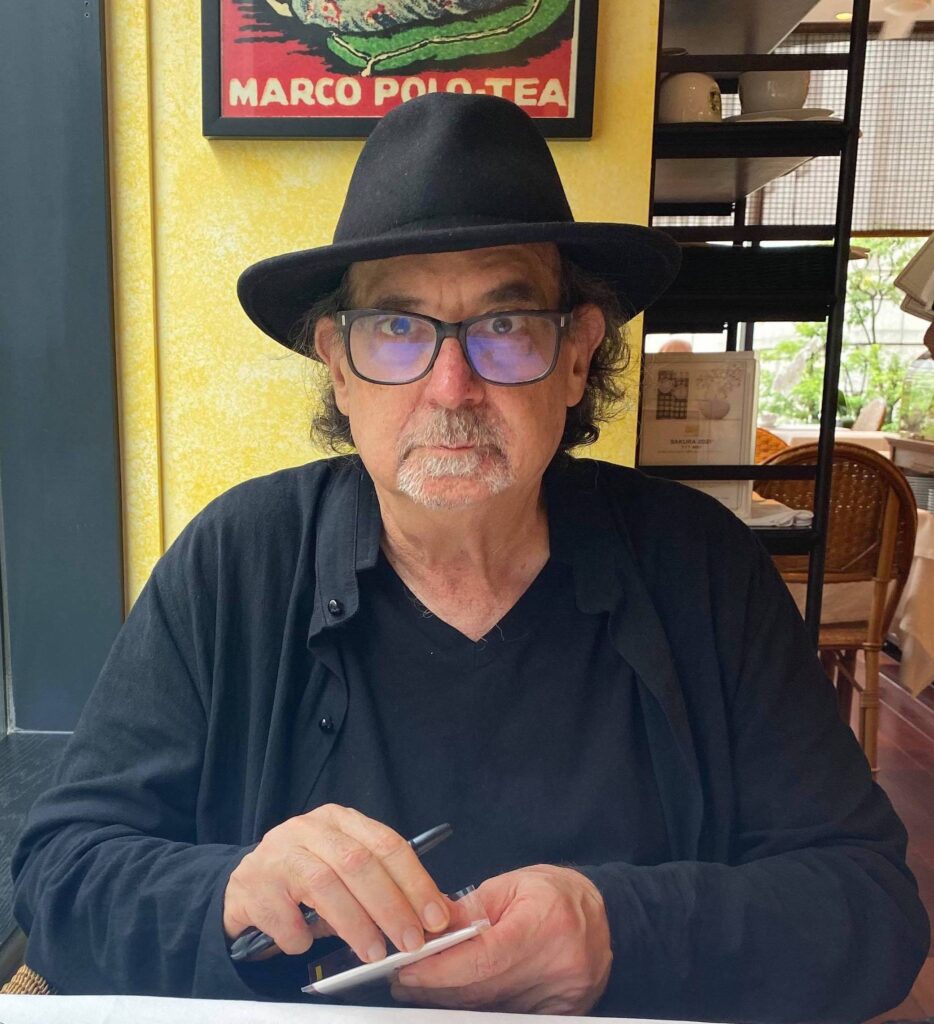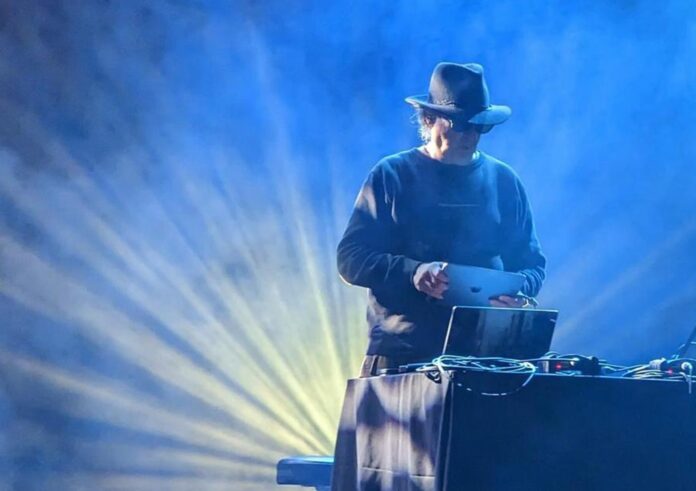Samples are bread and butter in Carl Stone’s hands. The 71-year-old composer, who splits his time between Tokyo and his native Los Angeles (but lived in San Francisco from 1993 to 2001), was creating sound collages with samples and electronics when hip-hop was still a regional phenomenon on the other side of the country. By 1986, he was performing shows with a laptop long before computers became ubiquitous in live electronic music—and the effervescent and emotionally gripping music he makes with them still sounds like nothing else.
Stone will perform in Oakland on Sun/21 to inaugurate the West Oakland Sound Series, a new series of experimental concerts at Dresher Ensemble Studios. Equipped with his usual setup of laptop and tablet, Stone will collaborate live with event organizer Paul Dresher, an experimental composer and builder of unique instruments such as the Hurdy Grande.
“It’s like the principle of a hurdy-gurdy,” says Stone, referring to a hand-cranked instrument beloved of medieval musicians. “It’s as long as a car, so it’s got an enormous sound and it’s very beautiful and it’s great for sampling.”
Stone’s source material encompasses everything from J-pop to folk songs to Motown to hits by American pop stars like Madonna, Cher, and Britney Spears. “I’ve done a number of pieces that are based on ‘Barbie Girl’ by Aqua,” he says. “I heard it on the street while wandering around Berlin. It was just blasting out of some record shop.”
What comes out of the other side of the speakers, though, isn’t exactly pop music. Stone estimates his more recent pieces last about “eight or nine minutes” on average, and earlier epics often stretch to double-digit lengths. Yet one of the crucial qualities of Stone’s music is its emotional accessibility, be it the sighing melancholy of “Banteay Srey” or the funkiness of 2020’s Stolen Car (whose name is an anagram of “Carl Stone,” in keeping of his love of wordplay).
“People have complained to me that they feel my tracks are too long, and I don’t care if they complain or not, they are what they are,” says Stone. “Before, the forms were a little more complicated. Maybe they were modeled more after classical music as opposed to now, where they tend look more towards the form and structure in a pop song. But it wasn’t really a conscious decision so much as something that evolved naturally.”
Born in Los Angeles in 1953, Stone studied at CalArts under Morton Subotnick, the electronic music maverick who co-founded the San Francisco Tape Music Center in the ‘60s with Ramon Sender. The young Stone had access to countless synthesizers and great live performances by radical composers like Philip Glass and Steve Reich—but when he graduated and lost access to CalArts’ ample resources, he began brainstorming ways to compose on a budget.
Once Stone began working at a radio station and gained access to a music library and basic recording equipment, his mature style began to develop in earnest. In the late ‘70s came “Sukothai,” which abstracts a harpsichord sample from 17th-century composer Henry Purcell into a rain of crystalline shards, and “Woo Lae Oak,” a 54-minute tape piece that became his debut album.

These pieces also began Stone’s long tradition of naming his songs and albums after restaurants. Stone is a great lover of food, and his recipe for South Indian-style egg curry can be found in a recent interview with experimental music newsletter Tone Glow, along with many other culinary insights.
“It’s kind of a joke in a way,” says Stone, “but it’s a handy way to title my pieces because I don’t have to think really about how to describe them or come up with some poetic title that would give some insight into the music or not. It’s a very arbitrary system that I use.”
Most of his tracks are named for restaurants in LA and Tokyo, but his time in the Bay Area did produce a handful of pieces named in honor of the Bay Area’s rich but constantly changing food scene—including one of the “Barbie Girl” edits, named “Flint’s” in honor of an iconic Oakland barbecue restaurant that shuttered in the ‘90s.
When asked for recommendations for restaurants in the Bay Area, Stone was unsure; many of his most beloved spots have since closed, though the self-professed “barbecue hound” will be pleased to know that Flint’s has resurfaced as a pop-up and that East Bay institution Everett & Jones is still going strong.
“I’m not in a great position to recommend,” says Stone. “But I’m gonna use the opportunity, if I have time, to try some new places.”
WEST OAKLAND SOUND SERIES: CARL STONE Sun/21, 7pm, Dreesher Ensemble Studio, Oakland. More info here.



